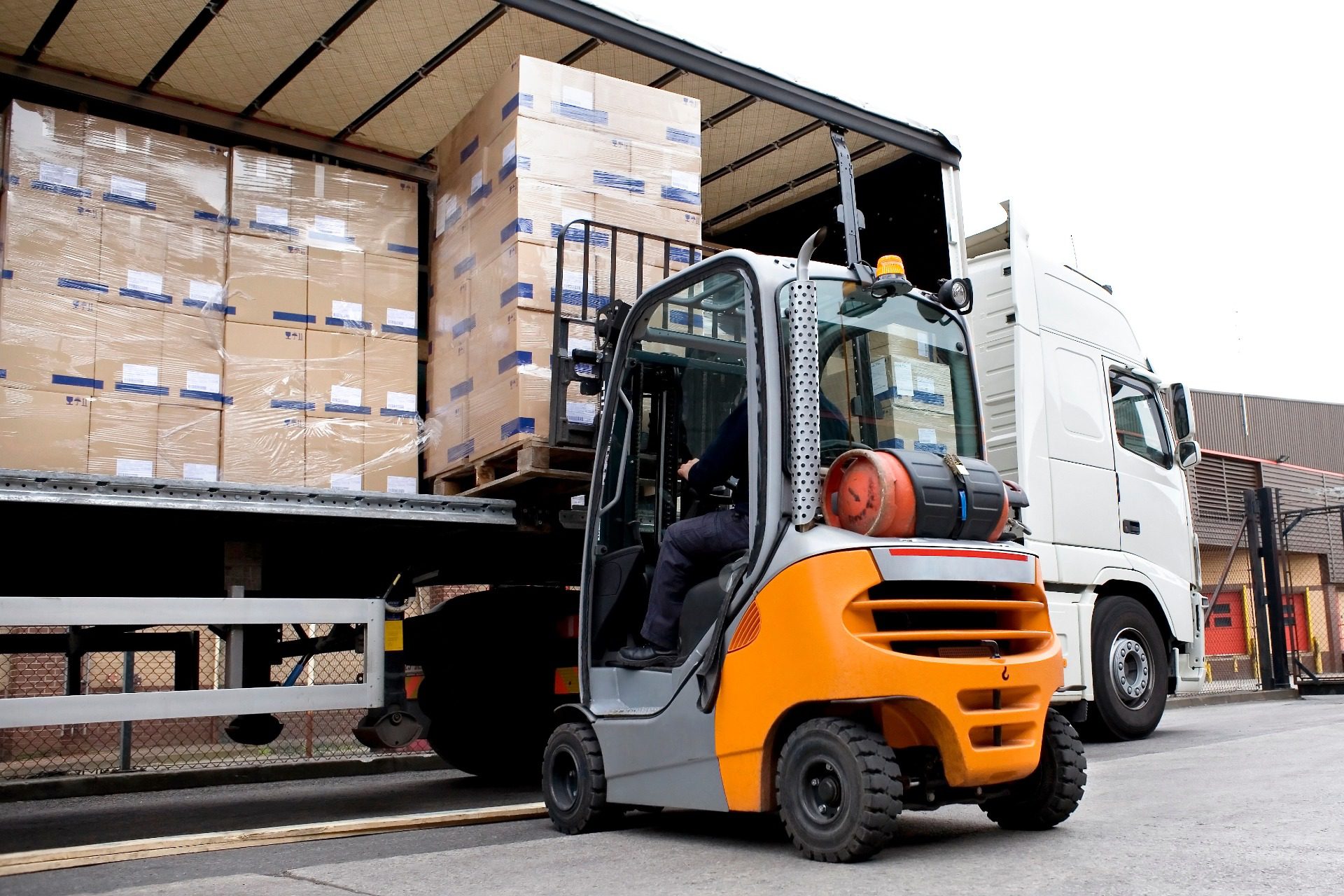It’s pretty safe to say that 2021 has brought on a normalized appreciation for delivered items. From clothes to groceries, if we have the option of getting something delivered rather than shopping in-person we’ll choose delivery every time. Especially since the pandemic began in March of 2020, there has been a notable increase in online alcohol sales and these numbers don’t seem to be going downward. A Forbes article from late 2020 noted that “online sales of alcohol in the U.S. are expected to grow by more than 80% this year.”
The pandemic proved that drinks can be served shaken or stirred but enjoyed equally from the comfort of our own homes. Despite this, the process of shipping alcohol isn’t an easy task due to state-by-state regulations in place to prevent illegal distribution. In this article we’ll explore how to ship alcohol and the proper channels to take to ship alcohol legally. We’ll cover:
Can You Ship Alcohol?
Let’s get the most obvious question out of the way: as a consumer, are you able to ship alcohol to yourself? Unfortunately not. Shipping alcohol is illegal for consumers unless for some reason they have the proper permits and licensing that allow them to distribute alcohol. But why? These federal regulations were put in place after the 21st amendment was finalized when the US decided that people were allowed to drink again, but with some state-by-state guidance. One of the requirements for shipping alcohol would be that for consumers, it was a no go.
Now, licensed sellers of alcohol are a different story, whether that be a vineyard or a tequila start-up. Licensed sellers and retailers of alcohol will prioritize having the proper permits to ship alcohol, whether that be nationally or globally, so that they don’t have to deal with too many road bumps along the way. They must be aware of state laws and local regulations on shipping alcohol and keep up with other state requirements for delivery. So unless you’re a licensed seller of spirits, you’re unlikely to be able to ship someone your favorite cocktail fixings or bottle of red anytime soon.
How to Ship Alcohol
There are four major shipping companies that are most commonly used by sellers shipping alcohol: UPS, FedEx, USPS, and DHL. All carriers that accept alcohol shipments will have a few things in common. First and foremost, you must indicate that the shipment contains alcohol, as a surcharge will be added to the delivery. And naturally, an adult over 21 must sign for the shipment. Besides these few similarities, these carriers will vary in quite a few ways.
UPS
While UPS still doesn’t offer direct delivery to consumers, they are able to ship alcohol among sellers fairly simply with the proper permits. UPS’ alcohol shipping requirements entail that the seller:
- Must enter the UPS Approved Spirit Shippers Agreement
- Must provide all required state alcohol licenses to UPS for shipping
- All shipments must meet UPS packaging requirements for spirits
- Must provide the signature of an adult 21 years of age or older upon delivery for confirmation
- All packages must contain a special alcoholic beverages shipping label for domestic shipments
FedEx
FedEx’s requirements for shipping alcohol are very similar to UPS, but have some unique features that make it an experience customized to FedEx’ standards. The FedEx alcohol shipping requirements require that the seller will:
- Have a valid FedEx Account
- Contact a FedEx account executive by contacting customer service
- Enter a FedEx Alcohol Shipping agreement
- Use an electronic shipping solution, either the FedEx Ship Manager® or a third-party system approved by FedEx.
- Must identify all alcohol shipments by selecting alcohol on the shipping software
- Alcohol shipments must meet all FedEx alcohol packaging requirements
- All alcohol shipments must have a alcohol shipping label to indicate the contents
- Must be able to provide an eligible adult signature upon delivery for all alcohol packages
United States Post Office (USPS)
Unfortunately, if USPS is your preferred shipping courier, you won’t be shipping alcohol through them. Beer, wine, and liquor are restrictive substances and are not able to be mailed through USPS. Since alcohol shipments are so often determined by the specific state laws and regulations, USPS abides by all federal laws and regulations, making alcohol shipments prohibited. Even if you want to mail an item in a box that was once used for alcohol, those labels must be completely removed.
DHL
DHL is a shipping service that specializes in international shipments. The requirements for shipping alcohol through DHL will include:
- Must sign DHL’s Agreement to Transport Alcoholic Beverages
- Shipment must adhere to all FDA and TTB (Alcohol and Tobacco Tax and Trade Bureau) guidelines and regulations
- Must provide all required state or international alcohol licenses to DHL for shipping
- Must provide copies of federal basic and applicable state-issued shipping permits
- Import customers must possess all required permits and licenses to receive applicable shipments.
How to Package Alcohol for Shipping
Within all these carriers’ alcohol shipping legal guidelines, there are also packaging requirements that need to be considered when shipping alcohol. Since alcohol shipment deals with both liquids and glassware, it makes sense that the packaging restrictions are detailed and extensive. UPS even offers complimentary packaging services to help ensure all alcohol shipments are good to go. To avoid wasted alcohol sales and loss of product, shippers need to avoid breakage within the parcel by filling any voids in packaging appropriately. Different alcohol types will have unique requirements based on their contents, so make sure to consider the little details before arranging for a shipping label. Properly packing and marking boxes as fragile to make sure proper care is taken in handling the package is a necessary step to guarantee that the efforts of shipping the alcohol is worth it.
How to Package Beer For Shipping
If you’re an alcohol seller that is packaging beer for freight shipping, there are numerous factors to consider when shipping beer to make sure that beverages arrive safely and can be enjoyed once they arrive at the delivery location. Regardless of what storage preferences you have for beer, the boxes should be shrink wrapped to the pallet to secure your beer shipment adequately.
- Bottles: Choosing to ship beer in glass bottles is a risky shipment decision that could lead to product leaking away throughout transit. This is the least preferable suggestion for shipping, especially long distance, but can be done with enough caution.
- Cans: More breakable than glass but slightly easier to package, cans are still not the most optimal material for shipping liquids across state lines. Especially if these bubbly brews get shaken throughout the journey, you risk having cans explode.
- Kegs: Great for shipping but less optimal for convenience, beer kegs are a popular way to ship beer near and far from alcohol sellers.
Beer is a temperamental and bubbly beverage that comes in many forms for serving, so it makes sense that packaging methods need to be catered to the particular freight. There are four main factors to keep in mind when shipping beer, which include:
- Time: Beer has an expiration date, so making sure that the shipment will arrive in enough time is crucial. Opt for express shipping options if possible in order get the beer to the location as soon as possible.
- Air: Until the very moment one of those cold ones is cracked open, those cans or bottles should be airtight in order to stay fresh. Make sure that beer is packaged in a cold environment and padded for protection to prevent unwanted air from getting inside storage.
- Heat: On a similar note, hot environments are horrible for beer. There aren’t many factors that can spoil beer faster than by storing it in high temperatures. To maintain palatability, keep beer in an environment that’s around 40 degrees.
- Light: Especially for brews that highlight their hoppiness, keeping light away from beer is a must-have for shipping. In order to preserve the designed taste and freshness, beer should be kept in a dark storage environment.
How to Package Wine For Shipping
Just like beer, wine has its own specific requirements in order to be shipped successfully. Especially since wine drinkers tend to have a more precise palette, preserving the freshness and integrity of the wine throughout the transit process is important. Wine is one of the more commonly shipped spirits, with many wineries able to ship directly to consumers within the eligible states that allow wine deliveries. Some general tips for shipping wine include:
- Minimize Empty Space: Unlike beer, it’s less common to ship wine in anything other than bottles. Make sure to protect bottles with padding and void-filling materials such as bubble wrap and cardboard dividers.
- Know the Product: Take note of how specific wines need to be stored, as some bottles need to be stored standing up while other blends may need to be placed on their side.
- Customized Packing Options: Consider custom-made wine boxes that simplify the process of filling space within the parcel and are made for durability.
- Focus on Labels: Not only will the wine shipment likely need to have proper labeling to indicate the alcoholic nature of its contents, it’s a good idea to also make it clear that the contents are very fragile. This will help when shipping personnel handle the winel throughout the trip.
If you’re shipping wine and not going to use ShipCalm’s amazing FedEx rates you should make sure you check to see if you qualify for any of the FedEx pricing associations.
How to Package Spirits For Shipping
Same with beer and wine, the packaging requirements for spirits will depend mostly on the way the liquor is being stored. Liquor is an especially unique liquid to ship, as the slightest interference within the transit could compromise the curated taste or worse, waste the product all together. While the glass bottles used for storing liquor are much thicker than wine or beer bottles, they’re still subject to breakage without proper preparation. Some of the general rules for shipping spirits include:
- Prevent Glass from Touching Glass: The easiest way liquor bottles are able to shatter during the delivery is against one another. Choosing to package bottles with cardboard dividers and proper padding to eliminate shuffling is a must when shipping liquor bottles. Boxes going on top of boxes are inevitable during shipping, so make sure to shrink wrap pallets to prevent boxes from shifting.
- Consider Insurance: Liquor is priced at a much higher value than beer or wine, so making sure your shipment is insured is crucial for guaranteeing you’re prepared for any issues that come up down the line. It’s always better to be safe than sorry, especially when sending spirits.
Shipping Alcohol FAQs
Here are some of the most frequently asked questions from those looking to learn how to ship alcohol. Let’s explore some of these important inquiries when shipping alcohol.
Can Alcohol be Shipped to all 50 States?
The simplest answer: No, and you can thank Prohibition for that. Since 1933, states were given the right to decide their own alcohol laws, and shipping regulations fall within that jurisdiction. Within the scope of alcohol delivery, interstate shipments are easiest due to the fact that both parties are already aware of all local legal perimeters. However, many states don’t allow out-of-state retail sales of alcohol at all, and some have restrictions on direct-to-consumer sales. Knowing your shipment’s destination and the local laws for receipt is of utmost importance.
Can Alcohol be Shipped Internationally
Shipping alcohol internationally is when shipping requirements and preparations become even more complicated. International shipments are when taxes get added, regulations need to be checked, and both parties need to be prepared for send-off and receipt. While packaging will look very similar, the steps for shipping alcohol internationally are:
- Obtain Proper Licences: There are numerous permits required for shipping alcohol to another country. Making sure that all legal documents have already been settled and provided is the first step when considering shipping anything internationally.
- Select a Shipping Carrier: Once you’ve obtained the proper licensing, it’s time choose a shipping provider from UPS, FedEx, or DHL. As we know, each has unique shipping requirements, with even more details to iron out for international shipments.
- Abide by All Shipping Regulations: Following all shipping regulations isn’t only about gathering all the necessary paperwork. Make sure alcohol shipments are packaged correctly with proper international labeling in order to guarantee all elements of the shipping process are squared away.
How to Import Alcohol
When it comes to importing alcohol, there are steps that need to be taken in order to receive products legally and successfully.
- Obtain Proper Licences: In order to be eligible to even receive imported alcohol in the US, you must have a Federal Basic Importer’s Permit. In order to have this permit, you must have a licensed importer that can receive the shipment. You will also need a Letter of Intent from the foreign supplier, so make sure to gather all needed documents before arranging for an import. Some spirits, such as wine, may need a Certificate of Age or Origin so check your specific alcohol’s requirements.
- Get Required Approval: In order to import alcohol into the US, you must receive all necessary approvals from applicable government agencies. One of the first entities that you’ll need approval through is the Food and Drug Association (FDA). Each product will also need a COLA, a TTB-issued Certificate of Label Approval. This label essentially proves that the retailer/importers comply with all federal regulations within their alcohol labeling.
- Prepare for Customs: As with any forein import, the alcohol will need to go through custom clearance. The buyer will need to pay any taxes or tariffs incurred throughout the customs process, so preparation for these fees is highly suggested.
ShipCalm Can Help with Shipping Alcohol!
ShipCalm knows a thing or two about what it takes to properly and successfully ship alcohol. We’re able to help you with a wide variety of shipping needs, from international compliance intel to travel insurance and warehousing management. ShipCalm will have the strategies you need in order to send alcohol wherever you need, with expert knowledge of all alcohol shipping requirements. Request a custom price from ShipCalm to learn more about how you can elevate your alcohol shipping processes today!




